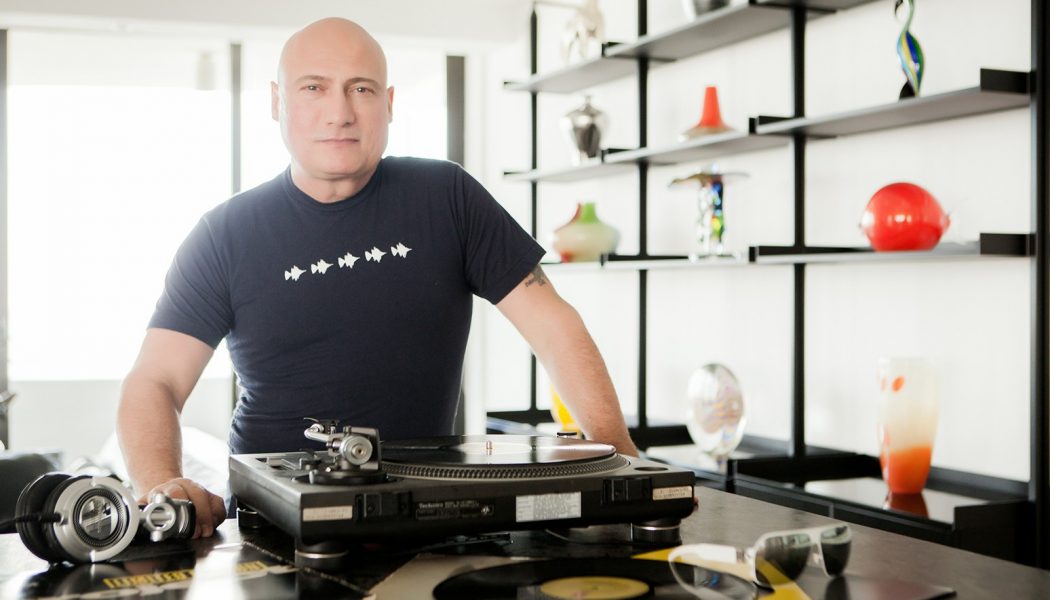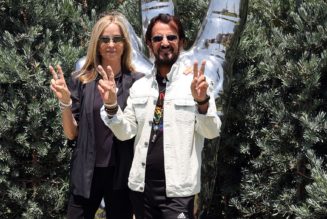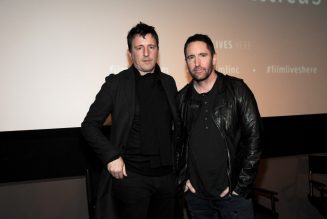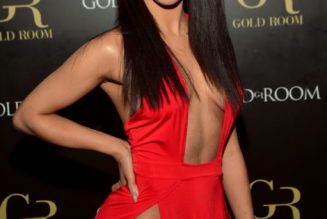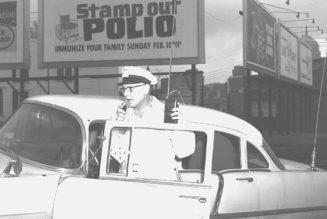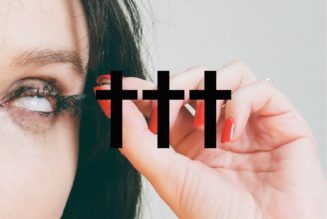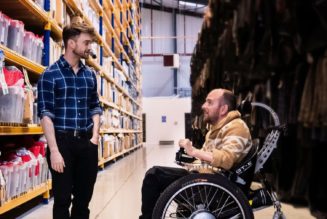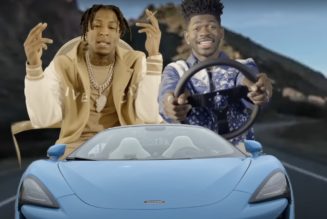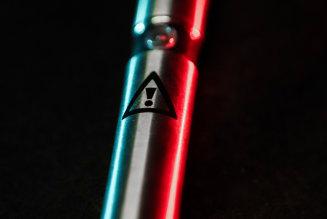
If anything points to the respect Tenaglia commands across dance artists of all generations, it’s the lineup for his 60th birthday party livestream fundraiser. Featuring sets by Carl Cox, Seth Troxler, Nicole Moudaber, Victor Calderone, Blond:ish and 25 other artists (including the birthday boy himself, of course) the event launches Saturday (March 6) via Beatport’s Twitch, YouTube and Facebook and continues into Sunday (which is Tenaglia’s actual birthday.) The party is free to stream, and all proceeds benefit UNICEF.
To commemorate the occasion, Tenaglia here answers 20 questions about falling love with dance music, the moment his parents really understood his success, the challenges of being off the road during the pandemic and how the dance world has changed (and stayed the same) since he got his start.
1. Where are you in the world right now, and what’s the setting like?
I am happy to say I’m in New Jersey. I’d never thought I’d live in this state, but it’s absolutely wonderful. I got a place here last December before COVID. I was in between Queens and Miami, but now I’m in this beautiful area of New Jersey that I’d never even heard of, Rainwood. It’s desolate. It’s in the woods and people come up for hiking trails. There’s no streetlights here. It’s private, there are amazing lakes nearby. I feel like I’m in a different state altogether, really.
2. What is the first album or piece of music you bought for yourself, and what was the medium?
It’s hard for me to know exactly which one. There was a record store that was on my black and my godmother used to take me there when I was a kid. I started absorbing this at so young an age, maybe six or seven. The one that comes to my mind is an instrumental called “Grazing In the Grass” by Hugh Masekela. It was a 45.
3. What’s distinctive about the place you grew up, and how did it shape you?
I was born and raised in Williamsburg, Brooklyn. I lived there for the first 25 years of my life, and I think it was the diversity of the community. I’m Italian, and it was an Italian community, but there was also a large community of Puerto Rican and Black people as well, especially in school. As a child, loving music, I really related to this — people listening to salsa, the jukeboxes, people dancing. I gravitated towards the rhythms. That helped shape me as a DJ, those different cultures. It was very soulful.
4. What did your parents do for a living when you were a kid, and what do they think/did they think of what you do for a living now?
My mom used to work at Bergdorf Goodman, but she had five boys, so naturally that didn’t last very long. She was a housewife and my dad was in the military and a head mechanic at the National Guard for twenty-something years. As of last year my dad is gone. He was 91. My mom passed in 2008.
When I first told them that I wanted to leave high school to be a DJ, they didn’t understand. They were thinking like, Howard Stern and Cousin Brucie. And I was like, “No, I want to play nightclubs.” The great thing is that they saw I was never in trouble. Never arrested. Didn’t fall into drugs. I was just addicted to music. Those were the things that were important to them. But in 2002, when I was nominated for a Grammy [for best remixed recording], I think that elevated things for them, even though it didn’t mean as much to me as the DJ awards that I get from the dance music community.
5.What was the first song you ever made?
It was called “Waiting For a Call,” and I used the artist name Deep State, which wouldn’t be too good to use today. This was in 1988, so I just thought I was being deep. It got signed to Atlantic Records, so it was like “wow.” I think the connection is that back then I was a Billboard reporter for the dance charts, in the ’80s and top of the ’90s, so I had a connection with the people that would call from the promotion companies and the record labels. There was a guy named Joey Carvello who used to work at Atlantic. He heard my demo, and he signed it.
6. If you had to recommend one album for someone looking to get into electronic music, what would you give them?
I probably have to say Kraftwerk. They really took dance music into an electronic way, and I grew up with them as well. It was 1975 when they put out Trans-Europe Express. I was hearing that in straight clubs, gay clubs, Black clubs — people listening to Kraftwerk. Every album they did was just more advanced.
7. What’s the first non-music gear item that you bought for yourself when you started making money as an artist?
Besides being a DJ, I started loving collecting lamps and furniture. I bought a Warren Platner dining set from a store called Knoll. It’s from the ’60s, and it still sells today. It was probably about $16,000, and I still have it! Want to see it? [He carries the camera to the dining room to show me the table, which is beautiful.]
8. What was the first electronic music show that really blew your mind?
I would have to say a band called Orbital. It might have been while I was on the road at a festival. I was so impressed, because it was almost like seeing a Kraftwerk kind of show. I didn’t see Kraftwerk until a few years ago. Orbital was a great dance/electronic band from England.
9. Give me a particularly resonant Paradise Garage memory?
I’ll give you two. I remember the first time I walked in. People knew my love of clubs and dance music and they were like, “Danny, you’ve gotta go the Garage.” So I went. I walked in early. They used to open around 1 a.m., believe it or not. It was opening hour kind of vibe. Larry was playing Peter Brown’s “Do you Wanna Get Funky With Me.” It’s a funky electronic record. I was mesmerized. It was like a kid going to Disney World or something. I’d never heard a sound that large in my life. I just couldn’t believe what I was seeing, and then slowly the people start coming and the lights started getting a little more dim, and 11 hours later, I didn’t want it to stop.
After I was going for a couple years, Larry had mixed a song on Atlantic Records called “Can’t Play Around” by Lace. That was around ’81. They only had that one song, and it was so famous at the Garage. They came out to perform it, and it was like going to a gospel kind of church. What I remember the most is that I happened to be up in the DJ booth — they had like a mezzanine in the DJ booth, and I’m watching the stage, full of goosebumps, and when the song ended the crowd was stomping and hollering so loudly in appreciation that they actually had to do it again, because they didn’t have another song to sing. I got goosebumps telling you this story, swear to god. And the second time they performed it was even better.
10. You’ve been in the dance scene for longer than many. What are the biggest changes between the dance world when you were starting out and the dance world now?
What hits me is that it’s music made for dancing, and that people don’t really dance anymore. When I was a kid, people would dance — silly dances like the twist, and the tango and waltz. During my era and the disco era, people were doing the hustle and the bus stop. I was even on a TV show dancing the hustle — Soul Alive, the disco version of Soul Train. I lived through the breakdance era, the vogueing era, when I worked in clubs. I always absorbed all of that. Now it’s all been narrowed down to head bobbing and first bumping, so I miss all that.
11. In 2012 you famously resigned from DJing, only to come back two years later. What inspired each decision?
It was a classic case of lost in translation. I had an issue where I was on may home from Montreal to Miami. When I got back to my apartment, I realized I didn’t have my computer. I had a meltdown. I got dressed. I ran do the airport. It was late at night, and I had to wait until 6 a.m. until they opened up the gates, and sure enough — it wasn’t on there. Never saw it again. I went home so distraught — and something also happened that day in New York pertaining to business — and I was starting to realize that traveling overseas, the time changes, residencies, remixes, it was getting the best of me. I said in my post on Facebook that I was “resigning” not “retiring” but everyone took the information a different way. I never stopped working. I did all the gigs I had booked and didn’t take on any international gigs to the next year.
The funny thing is, I got to work on a project with Giorgio Moroder, and we became friendly. The last time I saw him he said, “Danny is it true you’re retiring?” I was like, “Giorgio Moroder cares about this?” I told him the information had gotten confused and he was like “Oh, thank god.” Just for that, it was worth it.
12. After decades of playing clubs, how do you still get yourself excited to play a set?
It has changed. 45 years later since Miami Lounge in Brooklyn, I’m procrastinating more to actually sit down and listen to the music. It’s become so different from the first 30 years of my career. Going to record stores, getting the promos in the mail, physical vinyl, the CDs, the flash drives and then files in your computer where everything looks the same. It started losing the glory a little bit, especially when the record stores and labels started closing and everything became digital. The social aspect, with that you felt a drive and energy. But getting into my 50s, you start getting interested in other things, and your next gig might not be for the next five weeks. But when I finally do sit down and do it, it’s like all that time is erased. I’m that kid filing through records all over again.
13. Finish this sentence: The most exciting thing currently happening in the dance scene is ____?
I’m so removed from things at the same time as being involved. I’m not big on social media. I never use Twitter. I don’t have notifications on my phone. What I’m trying to say is, what it’s all grown into with the DJs and the travel and the agencies and the festivals, I do feel that even though many of us have completely different styles, there’s still a sense of community and unity among DJs, because ultimately we all do the same thing. A good example is my birthday event, and how many people said yes to doing this. We’re all different in many ways, but we’re all coming together to celebrate dance music and house music and someone like myself, who’s lived it for over four decades.
15. The lineup for that birthday livestream is stacked. Is curating a show like that simply a matter of calling up your friends and asking?
I still have to pinch myself. With regards to the pandemic and not being able to really travel, you don’t really get to see these people, but it felt like a curse — and now maybe I’m finding the blessing — that if there was no pandemic this probably wouldn’t have happened. You look at the lineup, and it looks like Ultra or Electric Zoo. I feel a sense of unity with DJs, and we’re all in this together, and suffering.
16. What’s been the hardest part of being off the road during the pandemic?
I miss everybody. I miss the communications, all that’s natural about it… I think the hardest part honestly is it being the first time in I can’t remember however long that I’m not making any money. I have no income. I’ve always had income since the ’80s, and now that I’ve taken on this home in New Jersey before COVID, I’m stuck with two properties, and so I’m actually on unemployment. Thank God the government has helped me as a small business owner; I have one employee. People see a DJ like myself, and I’m having David Guetta and Carl Cox play my show. These guys, they’re comfortable. And people probably also think this of me too. I don’t have any hit records. I don’t command main stage appearances. I’m happy. I’m comfortable. I have all the things I need in my life like the home and the car, but without a consistent income, it became challenging with the two properties.
17. That maybe makes the next question a little crass, so tell me if you want to skip it, but what’s the best business decision you’ve made during your career?
Well I did look at this question, and I thought about it and I was thinking that considering I’m a DJ/producer/remixer guy on the international scene, I think the best decision I made was to never start my own record label. A guy like myself who was a full time DJ — then took on the remix field, spending countless days in the studio, and then the travels and the jet lag — if I was a label owner, that would be more decisions to occupy my time. In hindsight, I don’t think it would have been lucrative for me, because I’m not in the commercial music world. I’m glad I didn’t waste years of my life listening to demos and working records that are only going to sell 500 copies.
18. What’s one thing you’d like your fans to know about you?
My spirituality, it’s what keeps me going. At the end of the day, I pray about everything and it’s really what gets me though. Before each gig I pray. I pray for everybody. I thank God every day.
19. Your credo has always been “Be Yourself.” What makes you so passionate about this message?
I did that song with Celeda, who’s trans. She flew to New York to meet me in the studio, and we finished that one pretty quickly… She really related to the [androgynous disco artist and activist] Sylvester, who was one of the first people to come across that way and live his life. I guess she aspired to be like Sylvester. And I guess we can all relate to it in many ways — you don’t want people to judge you or tell you what to do.
20. One piece of advice you’d give to your younger self?
I think it’s relative to be yourself. Don’t let anybody tell you how to live, what to wear, what record what to play, and most especially don’t let anybody tell you who you should love, because love is from above.
